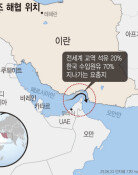No more abuse of presidential amnesty
No more abuse of presidential amnesty
Posted January. 30, 2013 04:51,
President Lee Myung-bak pushed ahead with granting amnesty to convicts near the end of his term despite heavy opposition from President-elect Park Geun-hye and the public. Those pardoned include the president`s key confidents including close political ally Choi See-joong, tour company owner Chun Shin-il, former National Assembly Speaker Park Hee-tae and Kim Hyo-jae, a former presidential secretary for political affairs. President Lee deserves criticism that he has abused his presidential right to grant pardons by hurriedly exercising the power not long after the beneficiaries were convicted. The pardons were granted in the form of reciprocal parole to appease the main opposition Democratic United Party and President-elect Park. The pardon list includes three aides to former President Roh Moo-hyun embroiled in a bribery scandal, including former presidential secretary for civil affairs Park Jeong-gyo and Suh Chung-won, former head of a pro-Park coalition.
Exercise of the presidents right to pardon should be refrained as much as possible. This is because it constitutes a grave exception to the principle of separation of power as a measure to suspend the implementation of judicial rights by the executive branch. Regrettably, all previous presidents have effectively abused their right to pardon even after the nations democratization. In his inauguration speech, President Lee said, I will not pardon people involved in influence-peddling scandals and relatives embroiled in corruption. He has clearly broken this promise.
How pitiful for the presidential office to make an excuse for Choi See-joong by claiming that he was not involved in irregularities over President Lees term. The president`s camp said Choi was found guilty merely for taking 600 million won (553,000 U.S. dollars) in political slush funds in 2006 and 2007, which was before President Lees inauguration. Choi admitted that the money was used in the presidential primary of the then Grand National Party in 2007. One of the 55 people pardoned Tuesday was Cho Hyun-joon, the eldest son of Hyosung Group Chairman Cho Suk-rai, who is President Lees in-laws. Another irrational claim is that the junior Cho is not a relative but just a cousin of the president`s son-in-law. The release of five people involved in a violent 2009 clash between police and residents in an urban development zone in Seoul`s Yongsan district runs counter to law and order. One police officer was killed due to violence and arson committed by the people set for pardon.
Yoon Chang-joong and Cho Yoon-sun, spokespersons for President-elect Park, blasted the latest amnesty, saying the pardons were a denial of public sentiment. The next chief executive should also not follow in her predecessor`s footsteps when her term is up five years later. All former presidents chose to come under fire rather than be unsympathetic figures because their relatives or confidants were embroiled in corruption over their terms in office. President-elect Park must manage people around her well to ensure that nobody will need to be pardoned in the first place.
Korea also needs to review and improve the pardon system. The latest amnesty is the first of its kind taken after a review by the pardon review committee, which was formed following a December 2007 revision to the Parole Act. The committee, however, has failed to prevent abuse of pardons. The identities of committee members and what they said in the meeting will reportedly not be disclosed for five years. If so, chances are high that the committee merely works to endorse the presidents wishes and decisions. The autonomy and transparency of the pardon review committee should be enhanced and conditions for amnesty should be toughened to ensure that beneficiaries must have completed at least a third to half of their prison terms.



![아침 공복 따뜻한 물 한 잔, 정말 살 빠지고 해독될까?[건강팩트체크]](https://dimg.donga.com/c/138/175/90/1/wps/NEWS/IMAGE/2026/03/05/133467930.3.jpg)



